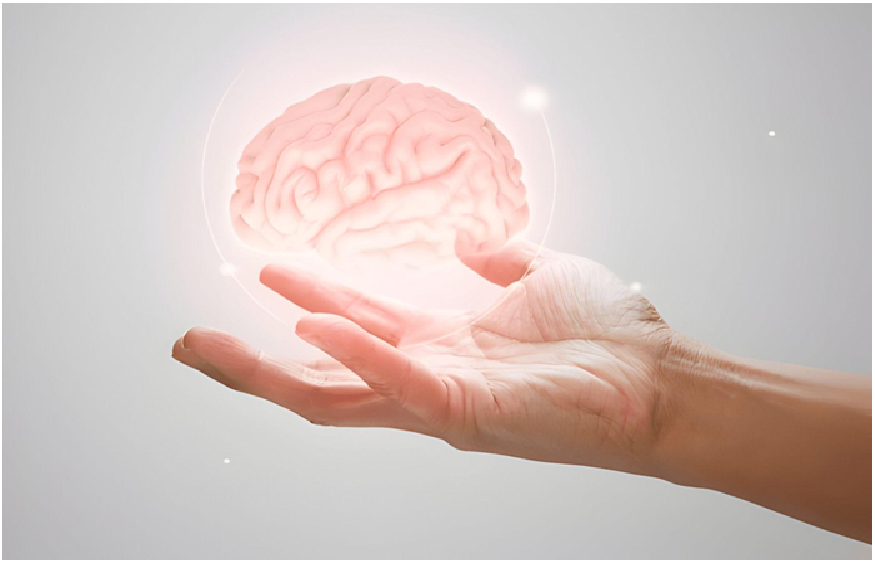
What Is the Memory Capacity of a Human Brain?
The human brain is a complex organ, often described as the most intricate structure in the known universe. Its capabilities, especially when it comes to memory, are astonishing. Understanding the memory capacity of human brain involves getting into the types of memory, the mechanisms by which the human brain works, and how conditions like Alzheimer’s disease can affect this capacity.
If you are looking for the best place to get the remedial for Alzheimer’s disease, visit a hospital in Gurgaon today.
Understanding the Memory Capacity of the Human Brain
The memory capacity of human brain has been a subject of fascination and study for many years. While it’s difficult to quantify exactly how much information the brain can store, estimates suggest that the brain’s capacity is roughly equivalent to 2.5 petabytes, or a million gigabytes. To put that into perspective, if your brain were a DVR, it could hold about 3 million hours of TV shows. This staggering capacity is spread across different types of memory, each with its unique characteristics and functions.
Types of Memory in the Human Brain
Memory in the human brain is broadly categorized into short-term memory (STM), long-term memory (LTM), and working memory. Each type serves a distinct purpose and plays a role in how we process and store information.
Short-Term Memory: Short-term memory, often likened to a temporary scratchpad, holds information for brief periods—typically around 20 to 30 seconds. It is where the brain processes new information and decides whether to discard it or transfer it to long-term memory. The capacity of the human brain’s short-term memory is limited, with the average person being able to retain about 7 items at a time.
Long-Term Memory: Long-term memory is where information is stored for extended periods, from minutes to a lifetime. This type of memory is further divided into explicit (conscious) and implicit (unconscious) memory. Explicit memory includes episodic memory (personal experiences) and semantic memory (facts and knowledge), while implicit memory covers skills and tasks that we perform without conscious thought, such as riding a bike.
Working Memory: Working memory is a form of short-term memory that involves the active manipulation of information. It is crucial for reasoning, decision-making, and behavior. Working memory allows the brain to hold and work with information temporarily, like solving a math problem in your head.
Understanding these types of memory is key to grasping how the human brain works to manage and store the vast amount of information we encounter daily.
How the Human Brain Works with Memory
The process by which the human brain works to encode, store, and retrieve memories is complex. Memory formation begins with encoding, where sensory input is transformed into a form that the brain can store. This process involves several brain regions, including the hippocampus, which is critical for converting short-term memories into long-term ones.
Once encoded, information is stored in different areas of the brain, depending on the type of memory. For example, procedural memories (how to do things) are stored in the basal ganglia, while emotional memories are often linked with the amygdala.
Retrieval, the final stage of memory processing, involves accessing stored information. The ability to recall memories can be influenced by various factors, including the strength of the initial encoding and the frequency of retrieval. Interestingly, the brain’s capacity to store memories is not a simple matter of space but is also influenced by the efficiency of these processes.
The Impact of Alzheimer’s Disease on Memory Capacity
Alzheimer’s disease is a neurodegenerative condition that significantly affects the memory capacity of human brain. It is the most common cause of dementia, leading to a gradual decline in cognitive abilities, including memory.
In the early stages of Alzheimer’s disease, individuals may experience mild memory loss and confusion, particularly with recent events or conversations. As the disease progresses, it causes more profound memory impairment, eventually affecting long-term memories and the ability to perform everyday tasks.
Alzheimer’s disease disrupts the way the human brain works by causing the buildup of abnormal proteins, such as amyloid plaques and tau tangles, which interfere with neuron function and lead to cell death. This process particularly impacts the hippocampus and other brain regions involved in memory, leading to reduced memory capacity and difficulty in storing new information.
Memory Capacity and Cognitive Health
Maintaining the memory capacity of human brain is crucial for overall cognitive health. Several factors can influence this capacity, including age, lifestyle, and overall brain health. Engaging in activities that stimulate the brain, such as learning new skills, exercising regularly, and maintaining social connections, can help support memory function.
Research has shown that a healthy diet rich in omega-3 fatty acids, antioxidants, and vitamins can also play a role in preserving the memory capacity of human brain. Additionally, adequate sleep is essential for memory consolidation, the process by which short-term memories are transformed into long-term ones.
On the other hand, factors such as stress, lack of sleep, and poor diet can negatively impact memory capacity. Chronic stress, for example, has been linked to memory impairment due to the damaging effects of cortisol on the hippocampus.
Future Research and Memory Enhancement
The memory capacity of human brain is a topic of ongoing research, with scientists continually uncovering new insights into how memory works and how it can be enhanced. Advances in neuroscience are exploring techniques such as brain stimulation, neurofeedback, and cognitive training to improve memory capacity and treat memory-related conditions like Alzheimer’s disease.
In the future, understanding the molecular and genetic basis of memory could lead to breakthroughs in enhancing the capacity of the human brain or even mitigating the effects of neurodegenerative diseases. This research holds the promise of not only improving memory function but also enhancing overall cognitive abilities.
Conclusion
The memory capacity of human brain is a remarkable feature of our biology, allowing us to store and recall a vast amount of information throughout our lives. While estimating this capacity is challenging, it is clear that the brain’s ability to manage different types of memory—short-term, long-term, and working memory—is integral to our daily functioning.
Understanding how the human brain works with memory provides insight into the complexity of our cognitive processes and the factors that can influence memory capacity. Conditions like Alzheimer’s disease highlight the vulnerability of this capacity and the importance of maintaining brain health, and visiting a super-specialityhospital in Gurgaon can help you get the best treatment there is.




